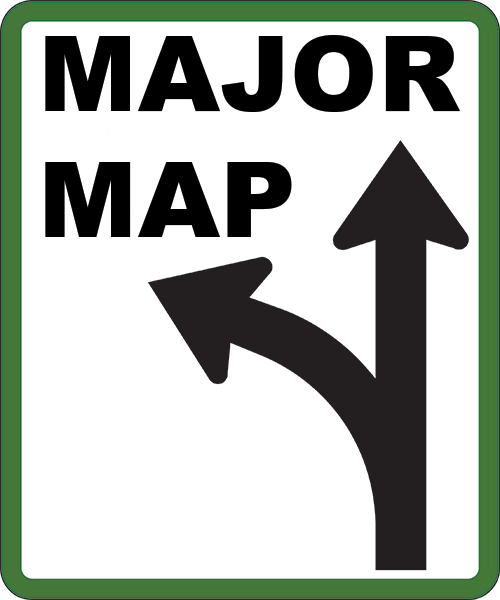|
|
|
Dec 25, 2025
|
|
2018-2019 USC Lancaster Bulletin (Archived Copy) [Archived Catalog]
Biomedical Engineering, B.S.
|
|
Program Educational Objectives
Graduates of the Biomedical Engineering Program will:
- Practice in a professional career or pursue an advanced or professional degree in which they are contributing to scientific, professional, and/or local communities through the improvement of human health.
- Advance their careers by engaging in teamwork, effective communication, and continued learning to expand their professional development and technical understanding.
Learning Outcomes
Students graduating from the Biomedical Engineering Bachelor’s of Science program will be able to…
- Students will be able to apply knowledge of mathematics biological, chemical, and physical sciences and engineering to solve problems at the interface of engineering and medicine.
|
- Students will be able to design and conduct laboratory experiments on living systems and their interactions with non living systems, as well as to analyze and interpret data.
|
- Students will be able to design a biomedical device or process to meet desired needs within realistic constraints, including economical and ethical constraints.
|
- Students will be able to identify, formulate, and solve problems at the interface of engineering and medicine.
|
- Students will be able to employ the techniques, skills, and modern tools necessary for biomedical engineering practice.
|
- Students will be able to function on multi-disciplinary teams.
|
- Students will demonstrate professional and ethical responsibility.
|
- Students will be able to present technical material through professional written reports and oral presentations.
|
- Students will be able to recognize economic, social, and global issues and to evaluate the impact that biomedical engineering solutions may have upon society.
|
- Students will recognize the need for lifelong learning and demonstrate the ability to learn independently.
|
|
Major Map
A major map is a layout of required courses in a given program of study, including critical courses and suggested course sequences to ensure a clear path to graduation.
Major maps are only a suggested or recommended sequence of courses required in a program of study. Please contact your academic advisor for assistance in the application of specific coursework to a program of study and course selection and planning for upcoming semesters.

Biomedical Engineering, BS
Degree Requirements (130-142 Hours)
See College of Engineering and Computing for entrance requirements, progression requirements, and special academic opportunities.
- Carolina Core Requirements (34-46 Hours)
- Other General Education Requirements (33 Hours)
- Biomedical Engineering Major (48 Hours)
- Biomedical Engineering Electives (6 Hours)
- Engineering Electives (3 Hours)
- Technical Electives (6 Hours)
|
1. Carolina Core Requirements (34-46 Hours)
CMW: Effective, Engaged, and Persuasive Communication: Written Component (6 Hours)
ARP: Analytical Reasoning & Problem-Solving (8 Hours)
SCI: Scientific Literacy (8 Hours)
AIU: Aesthetic and Interpretive Understanding (3 Hours)
- Any approved Carolina Core AIU course
GFL: Global Citizenship and Multicultural Understanding: Foreign Language (0-6 Hours)
- Score two or better on foreign language placement test; or complete the 109 and 110 courses in FREN, GERM, LATN or SPAN; or complete the 121 course in another foreign language.
GHS: Global Citizenship and Multicultural Understanding: Historical Thinking (3 Hours)
- Any approved Carolina Core GHS course
GSS: Global Citizenship and Multicultural Understanding: Social Sciences (3 Hours)
- Any approved Carolina Core GSS course
CMS: Effective, Engaged, and Persuasive Communication: Spoken Component (0-3 Hours)*
- Any approved overlay or stand-alone Carolina Core CMS course
VSR: Values, Ethics and Social Responsibility (0-3 Hours)*
- Any approved overlay or stand-alone Carolina Core VSR course
INF: Information Literacy (0-3 Hours)*
- Any approved overlay or stand-alone Carolina Core INF course.
2. Other General Requirements (33 Hours)
3. Biomedical Engineering Major (48 Hours)
4. Biomedical Engineering Electives (6 Hours)
Students must take 6 credit hours of Biomedical Engineering electives. Of these 6 credit hours, at most 3 credit hours may come from BMEN 499 - Independent Research . A list of acceptable Biomedical Engineering electives is maintained in the Biomedical Engineering office and on its website. These include the following:
5. Engineering Electives (3 Hours)
Students must take 3 credit hours of engineering electives. A listing of acceptable engineering electives is maintained in the Biomedical Engineering office and on its website. Engineering electives include all Biomedical Engineering Electives and the following:
6. Technical Electives (6 Hours)
Students must take 6 credit hours of technical electives. A listing of acceptable technical electives is maintained in the Biomedical Engineering office and on its website. Technical Electives include all Biomedical Engineering Electives, all Engineering Electives and the following:
Notes:
* Courses for CMS, INF and VSR must be selected to include at least 3 credit hours combined.
Academic Standards
Program GPA
Program GPA requirement policies are described in the College of Engineering and Computing section of this bulletin. For the purpose of these policies, the following courses are used to determine the Program GPA for the Biomedical Engineering B.S. program: all Biomedical Engineering Major courses, all courses used to satisfy a Biomedical Engineering Elective, all courses used to satisfy an Engineering Elective, and ECHE 320 or equivalent.
|
|
|
|